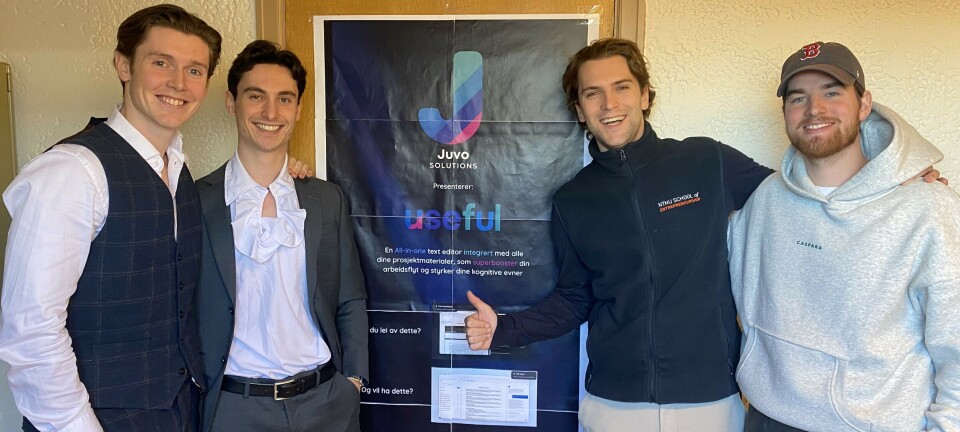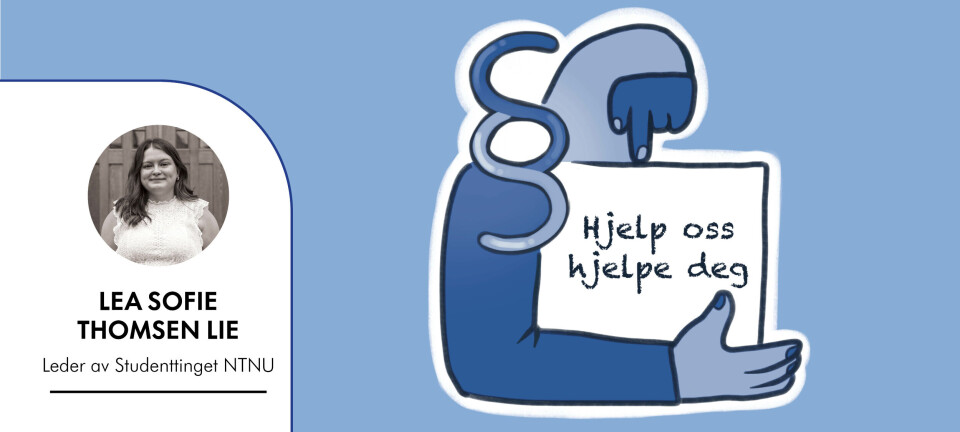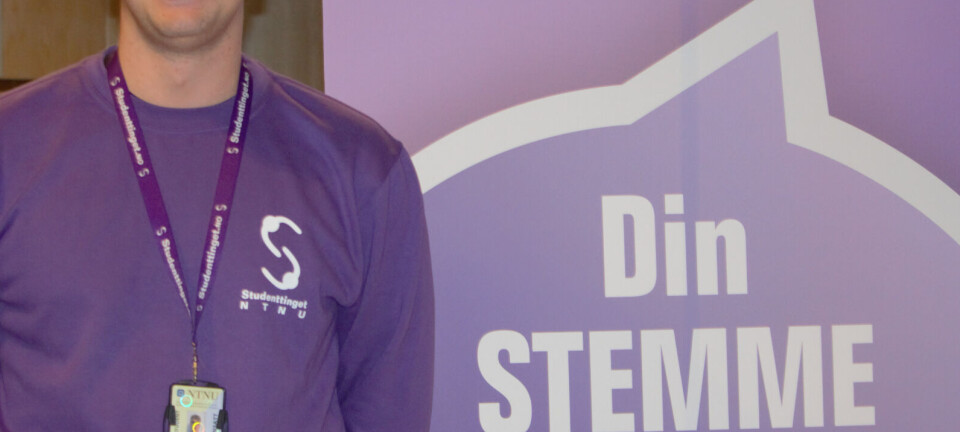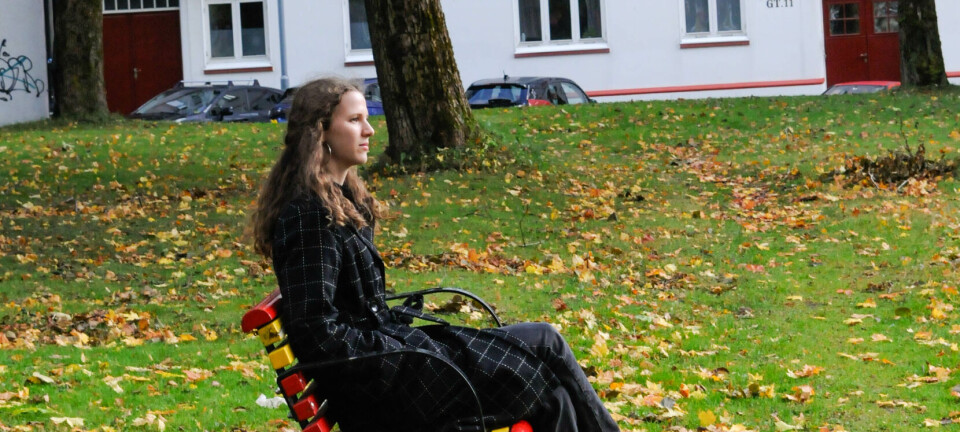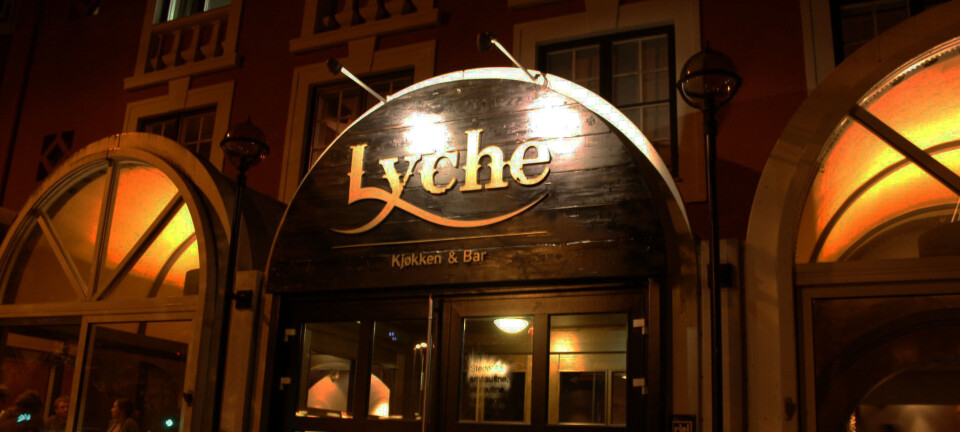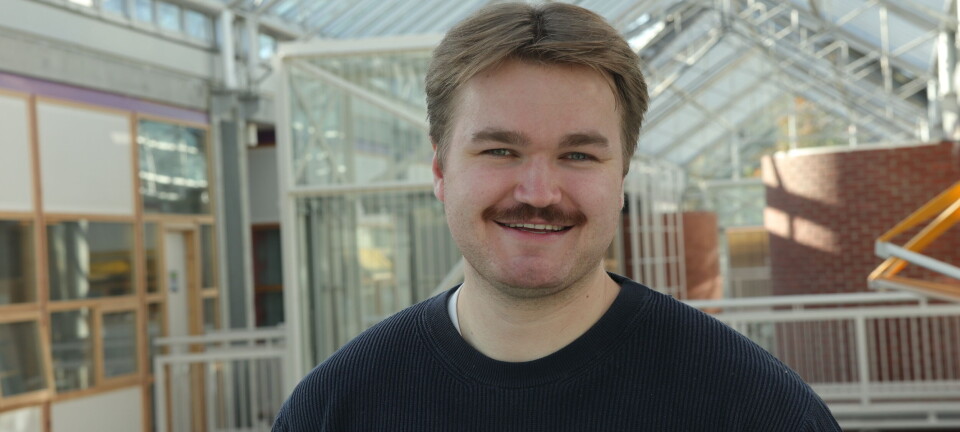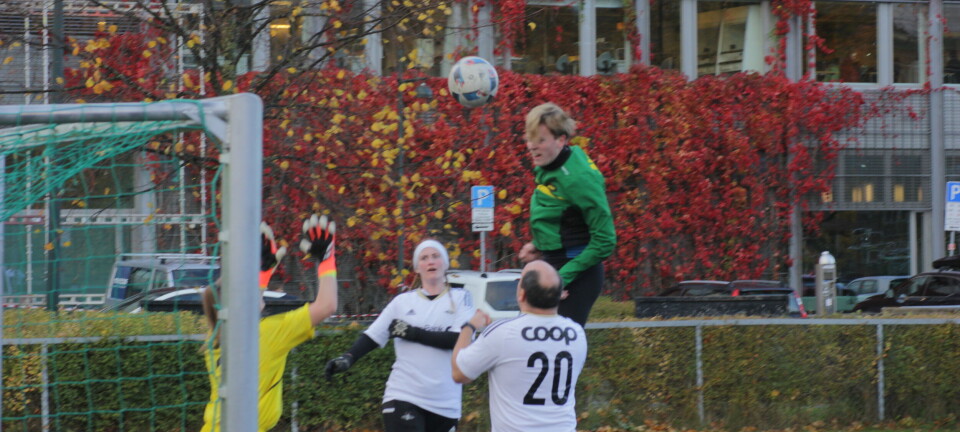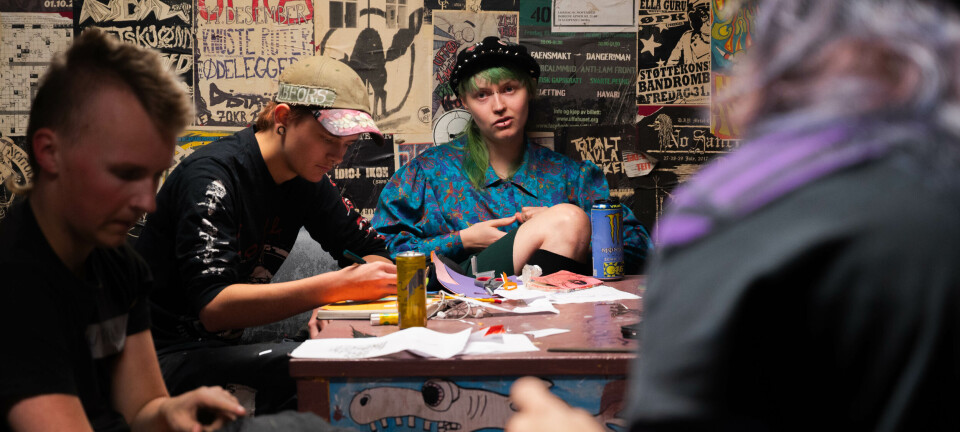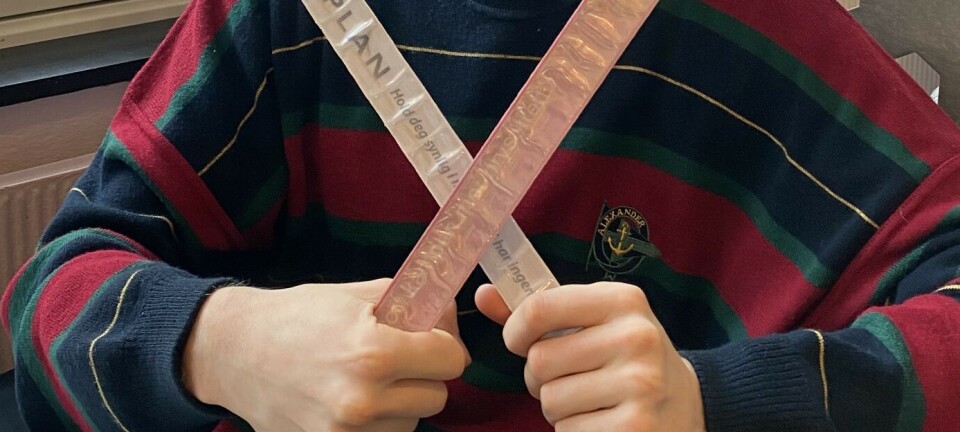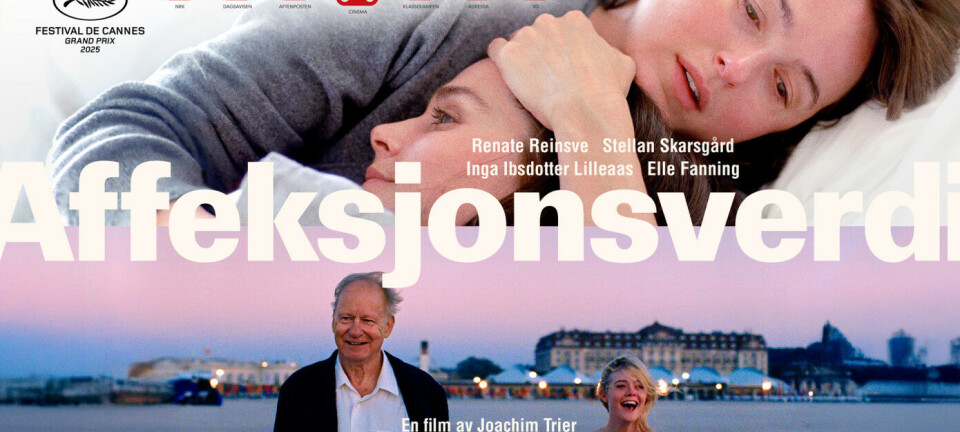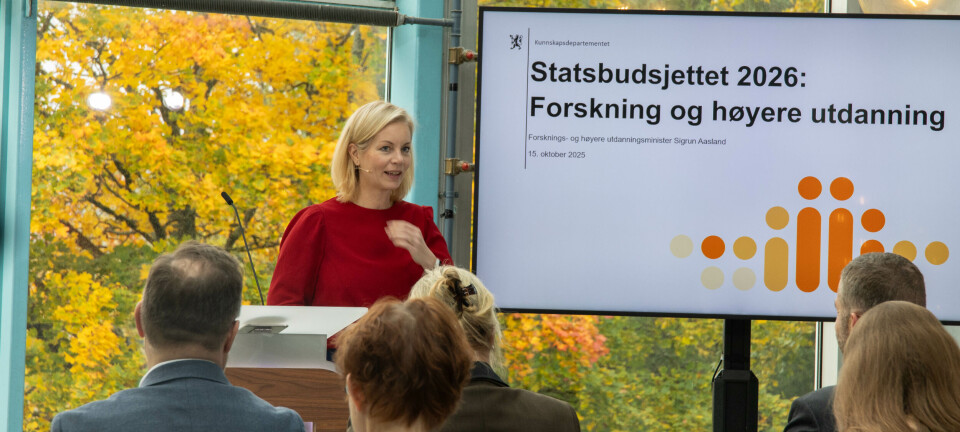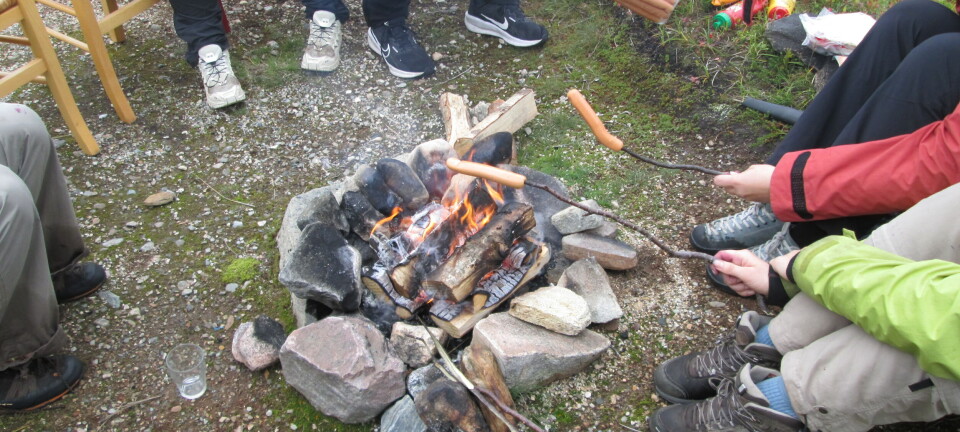
Zoé paid 15 euros to cry alone in the cold
Global party planning for international students is a massive business. Exchange student Zoé Heyd prepurchased tickets online, but the night ended in disaster.
Every year students spend endless hours preparing for going abroad. The stress is never-ending in the search for fun-filled experiences and new friends for the new semester. The research and preparations are mostly done online and through social media.

Zoé Heyd is one of the many students who started preparations early. She went to Oslo in January to go on exchange. She was intrigued when she got an email from a company called The Student Life (TSL), promoting an unforgettable welcoming event at a local nightclub.
– I thought it was great. I thought
I was going to meet other exchange
students and just have a good time. They
said if I booked an early ticket it would
be cheaper, so I did, Heyd says.
When buying the 15 euro ticket, Heyd
was also invited to a Whatsapp group
chat for international students in Oslo.
– There were maybe 50 members or
so. I’m not sure, some of them seemed
to be administrators as well. There was
not a lot of activity, but before the party
there was a group call that I joined, Heyd
continues.
The group chat, call and party are all
parts of packages that The Student Life
offers online for international students
all over the world.
– We sell welcome packages to students arriving in a new city. They may
contain information about the new city, virtual meetups, group chats and events
or parties, according to Ernst Lighthart,
spokesperson for The Student Life.
The Student Life is one of many
entrepreneurship companies in a new
digital global market for international
students.

Lighthart says the goal is to prepare
students for their new journey, and
connect them before and after they
arrive. Consisting of international
students, The Student Life claims to
know a thing or two about the nerves international students face before going
abroad.
– Our online team, the ambassadors,
are or have been exchange students
themselves and prepare virtual meetups
and manage online communities,
Ligthart says.
– It was a weird group call
The group call was Heyds first time
talking to fellow international students
going to Oslo at the same time.
– It was weird. In the meeting you
only talked about yourself. There was
a Romanian guy leading the meeting,
he had never been to Oslo and knew
nothing about the city. He just asked
questions about what people were into
and so on, says Heyd.
She felt confused that the meetup
didn’t include any locals or any
information about Oslo.

In a statement to Under Dusken
regarding Heyd's situation, TSL suggests
that the virtual meeting might have been a part of the package they offer
customers.
– If it was a group chat related to
one of our events, it is possible that the
person messaging was a student helping
to coordinate a pre-meetup before the
party. It could have been one of our
ambassadors or community managers,
says TSL in the statement.
Neither the group chat nor the virtual
meetup was a massive success for Heyd.
– I did not really participate in the
group chat, but I talked to a few of the other participants privately and tried
to arrange some meetups with some of
them, Heyd says.
Never met any other international students
Heyd remembers the first week in Oslo
vividly.
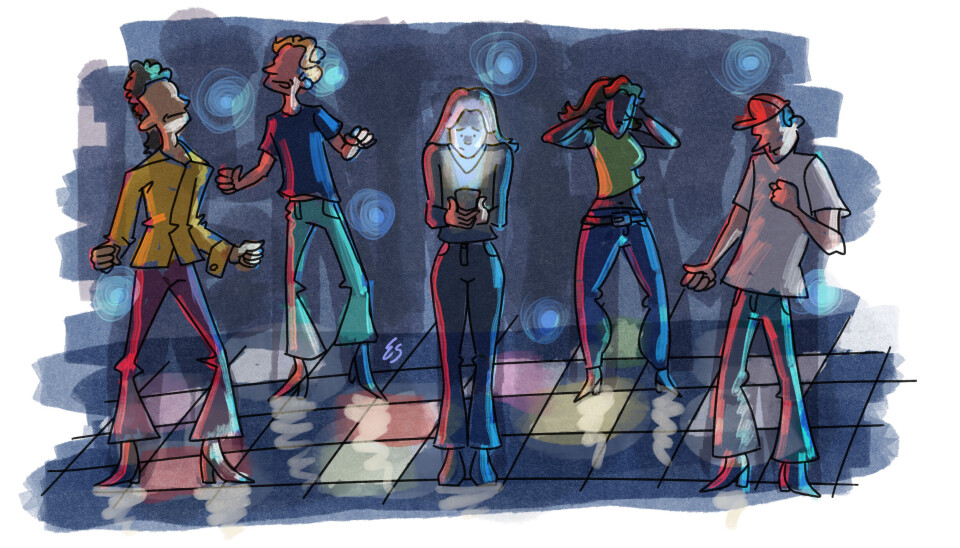
– It was horrible. The first few days I
was just really alone and depressed. Then
there was the party, Heyd says.
The party was first located at the club
KJ10, and then the venue was changed
last minute to another venue, called
Lawo.
– I thought it was a bit weird, but I
still went. It was not too far away, and
I wanted to meet other international
students and maybe make some friends,
Heyd says.
When Heyd went to the venue, she
was surprised by what awaited her.
– I had seen the ads, they promised
other international students and an
opportunity to make new friends. I was
so disappointed when I went up to one
of the groups there and asked them if
they also bought a TSL ticket. They said
no, Heyd says.
Heyd can’t remember meeting anyone
from TSL that night. She says she went
way out of her comfort zone for this
night.
– I don't really party a lot back home.
I don’t drink or anything like that, but I
wanted to meet new people here in Oslo.
I thought that there would be a party and
some introductions, Heyd says.
READ ALSO: International students allegedly scammed – were sold tickets to fake parties
– We let the venues run the parties
The Student Life explains that they
themselves don’t have much input on
the party.
– We’re mostly using DJs and clubs
to arrange the logistics of the party on
the night itself. They know the cities
and local rules the best. The clubs must
feel safe and we try to do our utmost to
stick with partners and clubs that have
good reputations and behaviour, says
Lighthart.
However, he acknowledges that there
are issues with the way they operate
organizing their events.
– Sometimes the clubs have unforeseen problems, which might lead to
change of venues. That is obviously not
ideal, but we will always make sure that
we offer the students what was promised,
says Lighthart.
With regards to Heyds case, TSL
states that these situations may happen
at events with low attendance.
– In order to ensure a good atmosphere for both students and the venue,
the club may sometimes decide to allow
additional guests in, says TSL in their
statement to Under Dusken.

Left the club in tears
For Heyd, the night ended in a feeling of
complete disaster and loneliness.
– I remember leaving the club. I was
really upset and crying, this was not what
I expected at all. My friends laugh about
it today, says Heyd.
After being in Oslo for a few months,
Heyd has made a few friends, and even
went to Ålesund with one of them for the
Easter break. However, the memories of
the party still stay with her.
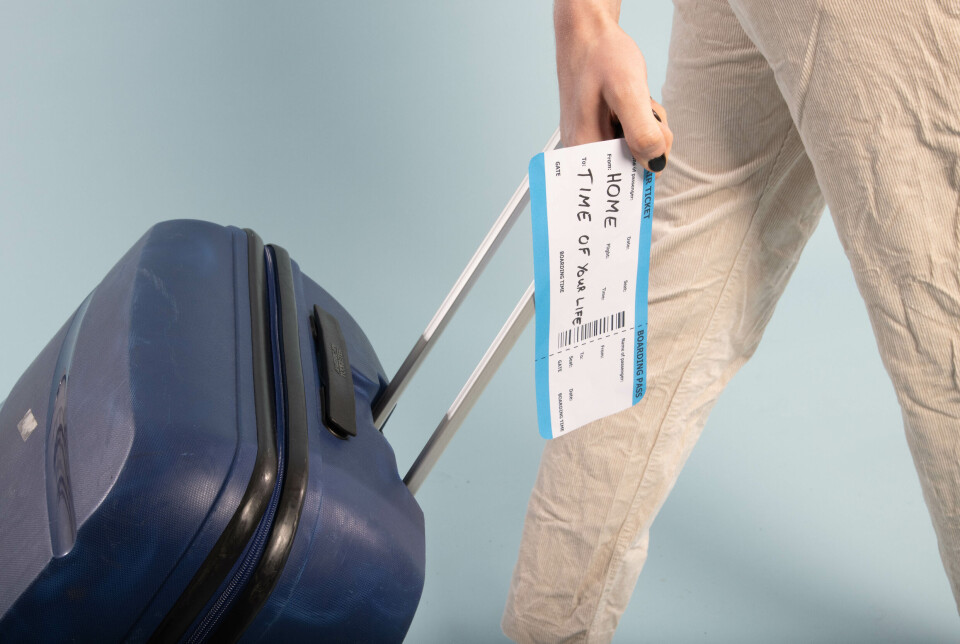
– It was such a bad night. Now I’m
fine with it, I only paid around 15 euros,
which I did try to get refunded because I
was really angry. However, I could never
get a hold of TSL, so it never happened,
says Heyd.
She went less digital after that night,
and became friends with one of the
girls she met through the group chat,
whom she originally planned on going
to a second TSL party with, though they
never went.
– Which is fine. It is not that much
money, says Heyd.
Heyd believed that TSL was the ones
organizing and had responsibility for the
events. She believes that the information
about their role was not clear before she
bought the tickets.
– Of course this should have been
clearer. It seemed obvious to me that they
were the organizers, not just promoters
of the events, Heyd says.
The Student Life says they are not
able to comment further upon Heyd’s
situation.
Operating in 60 cities from their home office
Networking through social media and
selling tickets for parties digitally on a
global scale is a relatively new concept,
but it is becoming increasingly common.
TSL says they build trust and collaborate
with venues to ensure quality.
– We have been doing this for years.
We usually try to maintain relationships
with these places for years. We try to be
at the clubs, maybe one of our DJs are there, or one of our people are there.
People we trust, says Lighthart.
TSL has a team who contacts the
different clubs in 60 different cities,
after recommendations through their
network.
– We have three event planners and
two event managers. They are the ones
checking in with the clubs and sending
emails saying “hey”, says Lighthart.
According to The Student Life, how
the party is and what it includes differs from club to club, so their packages will
differ.
– Whether a wardrobe or coat check
is included depends on the venue, says
TSL in a statement.
– They do not feel real to us
In Trondheim, there are currently no
events by companies like TSL, but
similar companies have contacted local
clubs, to which Studio 26 are skeptical.
– The companies start with flattery:
“We have looked at your club, it looks
great, you are doing a great job.” It's all
fluff, says Joachim Bøe Mortensensen,
daily manager of Studio 26, a local club
in Trondheim.
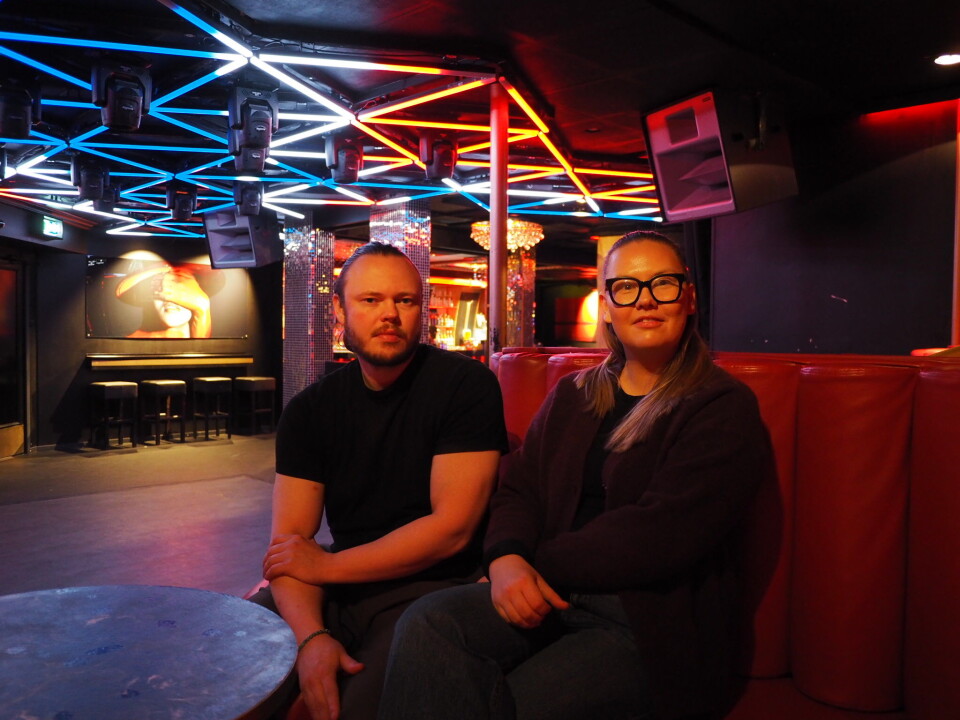
At one point Studio 26 received
partnership offers almost every week,
the partners would get the ticket income,
and Studio 26 would get the bar sales.
– They send all these promo videos
displaying what an event could be like.
Parties in Paris, Dubai, Berlin and so
on. It does not feel real to us, Mortensen
says.
Tickets to TSL events cost around 15
euros each, covering around 60 cities.
Selling 100 tickets for 3 events in each
city, would make roughly 270 000
euros each semester, excluding costs.
This is Under Dusken’s estimate, TSL
does not wish to comment on their
income. However, these companies are
completely dependent on clubs to have
the events and the free use of social
media to gather the students.
– We feel that those who are doing it
have found a loophole. The opportunity
is there to make money. So it is up to the
consumers, and we who rent out our
premises, to be critical, marketing chief
at Studio 26, Susann Vågen, explains.
Venues get several emails per week
Studio 26 are not planning on promoting
themselves digitally or cooperating with
digital promoters in order to sell tickets
in the near future.
– Maybe it is a bit old school, but we
want to meet who we’re making deals
with in person and explain to them.
Also, students aren't supposed to find out about us online, that becomes so
impersonal, says Vågen.
Mortensen agrees with her.
– It’s Trondheim, we are a small town.
We are not Miami or anything like that.
It's very simple. When we are at work,
we talk to the international students. It
is about being available, Mortensen says.
For them it is not only about meeting
the students physically.
– It is difficult to know who you can
trust over a computer screen, Mortensen
fills in.
Sometimes the demands from
these global companies have been
overwhelming.
– We have previously gotten several
emails per week, and it’s like they change
their names: “Hi, I'm Linda.” “Hi, I’m
Scott.” Then sometimes they've already
created groups or events on Facebook,
before we have even said yes to a
collaboration, Mortensen explains.
Things move fast, there are unclear
messages and it is uncertain who you
communicate with. The owners feel like
they lose control of their venue.
– Trust is something you can’t download
They prefer working with student
organizations locally, whom they can
meet and trust.
– There you don’t get any red flags,
because you talk to them all the time
throughout a year, so you know who you
have to deal with. It’s roughly the same
person who books the events every time,
Vågan adds.
They have a contract describing how
the collaboration is going to happen.
This helps build trust between the parties
involved, as well as securing the control
of the venue.
– We have built our collaborations
with local student networks. And trust?
That's not something you can download,
Mortensen states.
Studio 26 knows that even though
other clubs might be going online in
promoting, they feel as though being
your friendly neighbourhood club might
be the best solution.
– Why change a winning recipe? Of
course there are good solutions digitally,
but it creates new problems, Vågen
concludes.
READ ALSO: The activists in lab coats: – The ideal of neutral scientists is medieval


